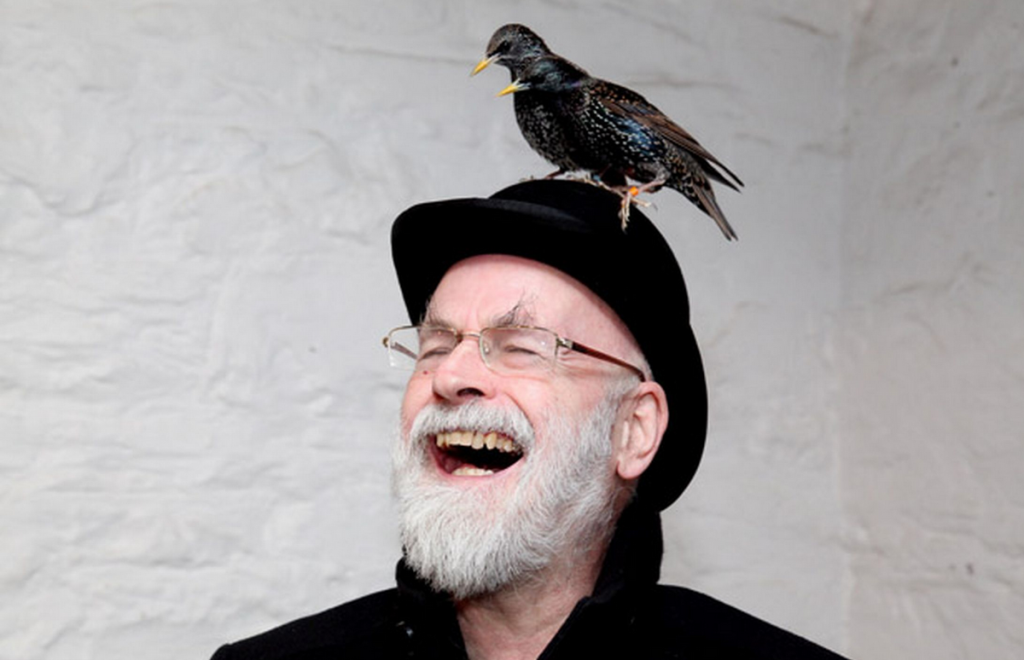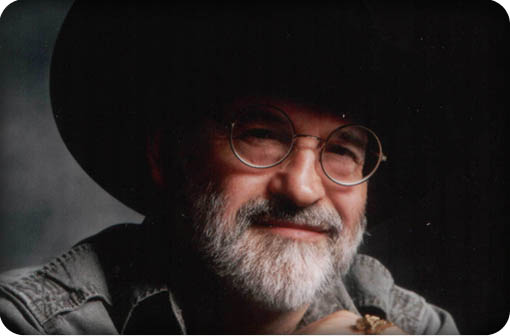DANA MOSS remembers the late, great, Terry Pratchett.
“It is said that your life flashes before your eyes just before you die. That is true, it’s called Life.”

Terry Pratchett’s personification of Death was a defining feature of his work: a wonderfully benign parody of the Grim Reaper that often expressed fond bewilderment at the state of humanity. Through Pratchett’s public demythologisation of Alzheimers and his portrayal of Death, he taught us not to fear it but to greet it as a character that we all must come to know.
Since 1971 he has written 40 books as part of his famous ‘Discworld’ series, along with a variety of collaborations and standalone works that led to him becoming the UK’s best-selling author of the 1990’s. Influenced by a wide range of sources, Kenneth Grahame’s ‘The Wind in the Willows’ was an early inspiration whilst his works contain references from Shakespeare, H.P. Lovecraft, and J.R.R. Tolkien. His repertoire was impressively multi-faceted and diverse.
Whilst Pratchett began his career in science fiction, he soon turned to fantasy and found the genre shift liberating. He described writing fantasy as “seeing the world from new directions” and a large amount of his works satirise the society he lived in; later on, he would express discontent at the disdainful attitudes to the genre, together with the media’s singular emphasis on J.K.Rowling.
His depiction of Victorian London in ‘Dodger’ is playful and confident – it takes a certain bravado to construct a meeting between Charles Dickens (known as “Mister Charlie”) and his own fictional creation Dodger in the first few pages of the novel, but Pratchett accomplishes it with aplomb. The story follows Dodger as he saves a girl known as Simplicity from attackers and begins to unravel the mysteries behind the escape from her marriage. He effortlessly weaves intrigue and amusement with British politics, tweaking the time line slightly to introduce characters such as Benjamin Disraeli and Robert Peel into the narrative. Clean, funny and whimsical, it is hallmark Pratchett. London is brought to life with his keen eye and ebullient prose, as his characters swerve down alleyways, sidestep meetings with Sweeney Todd and scavenge in sewers.
Pratchett’s work was both much loved and much read. In the BBC’s ‘The Big Read’, a survey taken in 2003 to find Britain’s favourite novels, he achieved an impressive five nominations in the top 100, with only Dickens matching this feat. There have been a variety of adaptations of his works from radio plays to musicals to TV shows, and in all of the seven continents, including Antartica. In 2009 he was knighted for his services to literature, to which he replied that he was “delighted and honoured and, needless to say, flabbergasted.”
The 41st book in the Discworld series is expected to be published in September 2015, entitled ‘The Shepherd’s Crown’. It follows the story of Tiffany Aching, an up and coming witch, accompanied by other notable characters such as Granny Weatherwax and the Nac Mac Feegles, a tiny army of rowdy, blue and decidedly Scottish ‘pictsies’.
Pratchett leaves behind a staggering legacy of words, one that will no doubt be enjoyed and cherished by generations to come. In Going Postal, he writes ‘Do you not know that a man is not dead while his name is still spoken?’ Using that logic, Pratchett will surely live on.





